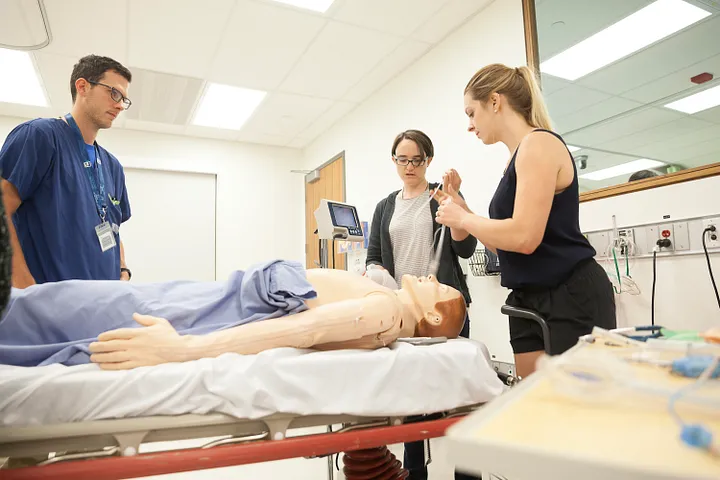Artificial intelligence (AI) is rapidly transforming the healthcare industry, and kidney health is no exception. AI is being used to improve patient outcomes in a number of ways, including:
AI can be used to analyse large datasets of patient data to identify patterns and risk factors for kidney disease. This information can be used to help patients prevent kidney disease or to catch it early, when it is most treatable.
For example, a study published in
the journal Nature Medicine in 2020 used AI to analyse data from over 1 million
patients to identify 10 new risk factors for kidney disease. These risk factors
included things like high blood pressure, diabetes, and family history. This
information could be used to help doctors identify patients who are at risk for
kidney disease and to take steps to prevent it.
Personalizing treatment: AI can be
used to personalize treatment plans for patients with kidney disease. This is
done by taking into account a patient's individual medical history, lifestyle,
and other factors. Personalized treatment can help to improve patient outcomes
and reduce the risk of complications.
For example, a study published in
the journal Clinical Journal of the American Society of Nephrology in 2021 used
AI to personalize treatment plans for patients with chronic kidney disease
(CKD). The AI model was able to take into account a patient's individual risk
factors and clinical data to develop a treatment plan that was tailored to
their specific needs. This resulted in better patient outcomes, including lower
blood pressure and improved kidney function.
Monitoring patients remotely: AI
can be used to monitor patients with kidney disease remotely. This can be done
through the use of wearable devices or sensors that collect data on a patient's
vital signs and other health metrics. Remote monitoring can help to identify
early signs of complications and allow healthcare providers to intervene before
they become serious.
For example, a study published in
the journal Nephrology Dialysis Transplantation in 2022 used AI to monitor
patients with CKD remotely. The AI model was able to track a patient's blood
pressure, heart rate, and other vital signs. If the model detected any
abnormalities, it would send an alert to the patient's healthcare provider.
This allowed healthcare providers to intervene early and prevent complications.
Developing new treatments: AI is
also being used to develop new treatments for kidney disease. AI can be used to
design new drugs and therapies, and to test the safety and efficacy of these
treatments in clinical trials.
For example, a study published in
the journal Science Translational Medicine in 2021 used AI to develop a new
drug for kidney disease. The AI model was able to identify a new target for
drug development, and the resulting drug was shown to be effective in reducing
kidney damage in animal models.
Here are some specific examples of
how AI is being used to improve kidney health today:
Fresenius Medical Care: This Company
is using AI to develop a new type of dialysis machine that is more efficient
and effective. The machine uses AI to monitor the patient's blood chemistry and
adjust the treatment accordingly.
NxStage: This Company is using AI
to develop a new app that will help patients with home dialysis track their
treatment data and adjust their treatment plans as needed. The app will also
connect patients with their healthcare team so that they can get help 24/7.
University of California, San
Francisco: This university is using AI to develop a new way to predict kidney
disease. The AI model is trained on a large dataset of patient data, and it can
identify patients who are at risk for kidney disease even before they show any
symptoms.
These are just a few examples of
how AI is being used to improve kidney health today. As AI technology continues
to evolve, we can expect to see even more innovative ways to use AI to improve
kidney health in the future.
AI has the potential to
revolutionize kidney care. By providing earlier detection, more personalized
treatment, and remote monitoring, AI can help patients live longer and
healthier lives. As AI technology continues to develop, we can expect to see
even more innovative ways to use AI to improve kidney health.















.png)
0 Comments